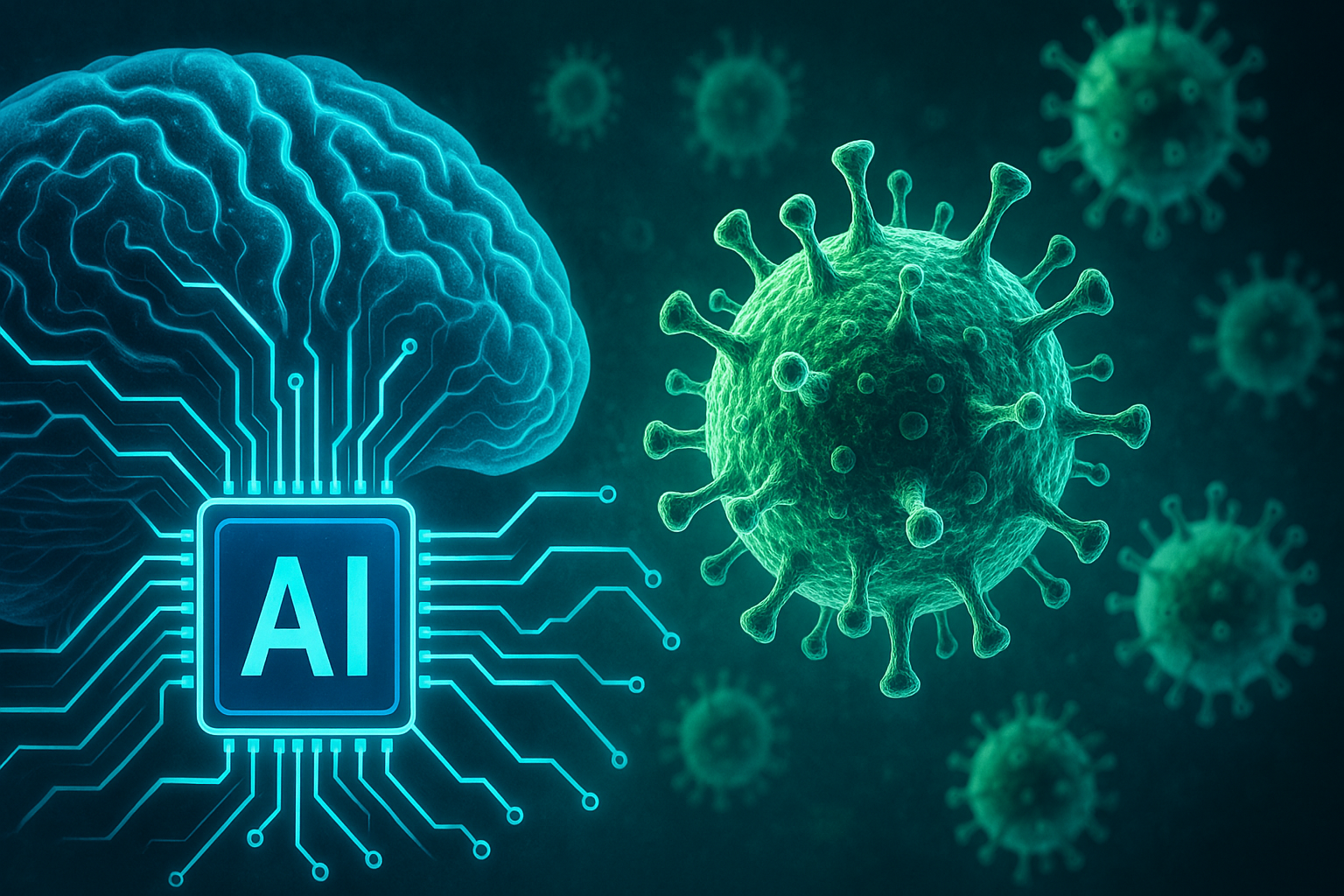
As reported by Techno-Science, in a recently published article in the journal Nature, an international group of scientists from Africa, America, Asia, Australia and Europe described how artificial intelligence (AI) can change the approach to the study of infectious diseases and significantly increase the world's preparedness for future pandemics. Over the next five years, the integration of AI into national systems for responding to outbreaks of infections can significantly improve the prediction of their origin, course and consequences, writes IZ.
Content
- AI moves from clinics to population health
- What exactly can artificial intelligence do in the field of pandemic security?
- Words from leading researchers
- Challenges and warnings
The study, a collaboration between the University of Oxford, the University of Copenhagen, the Pasteur Institute and other partners, calls for closer collaboration between scientists, governments and the private sector to ensure the safe, ethical and effective use of AI in health care globally.
AI moves from clinics to population health
Until now, artificial intelligence has been most often used in medicine for individual patient care: assisting in diagnostics, personalized treatment, and clinical decision-making. But now the vectors are shifting — researchers are focusing on the role of AI in combating pandemics at the societal level.
With new algorithms that can handle even limited amounts of data, AI can analyze complex and fragmented information, opening up new opportunities to improve healthcare not only in wealthy countries but also in those with limited resources.
What exactly can artificial intelligence do in the field of pandemic security?
- Improve disease spread models, making them more accurate and closer to reality;
- Identify areas with a high risk of spreading infections, which will allow for more efficient distribution of medical resources;
- Analyze the genetic data of pathogens, accelerating vaccine development and the discovery of new strains;
- Predict the properties of new pathogens, including the likelihood of transmission between species;
- Track variants of already known viruses — such as SARS-CoV-2 or influenza — and evaluate the effectiveness of potential vaccines and therapeutics;
- Combine large sets of population data with personal sources (e.g., physical activity trackers or heart rate monitors) to better detect and monitor outbreaks;
- Create interfaces that will make complex scientific data accessible to doctors even without special training, which is especially important for underdeveloped regions.
Words from leading researchers
Professor Moritz Kramer from the Institute for Pandemic Research at the University of Oxford stressed: “ AI has the potential to completely change our approach to pandemic preparedness. We can use gigabytes of data on climate and socio-economic conditions to predict the emergence of outbreaks and even their severity. And integrating such models into government systems is a chance to save thousands of lives .”
Professor Eric Topol from the Scripps Research Translational Institute noted that the capabilities of AI are impressive, but their realization depends on deep international collaboration and the continuous collection of high-quality data.
Samir Bhatt from the University of Copenhagen added that AI gives politicians a completely new tool — precise analytics that will help them respond to epidemiological threats in a timely and effective manner.
Challenges and warnings
Despite its potential, researchers caution against relying solely on AI. The technology is not a panacea. For example, while new protein analysis models can help understand how mutations affect virulence, sometimes their advantages over existing methods can be minimal.
There are also serious risks associated with the quality of training data, the closed nature of algorithms that do not allow for verification of decision-making logic (so-called “black boxes”), and unequal access to technology across countries.
That is why the authors propose developing clear standards for evaluating AI models and call for ongoing collaboration between governments, scientists, businesses, and the public. This will help not only ensure the safe use of technologies, but also make them useful and effective in combating global challenges such as pandemics.
As a reminder, we previously wrote about how to teach English using artificial intelligence.

